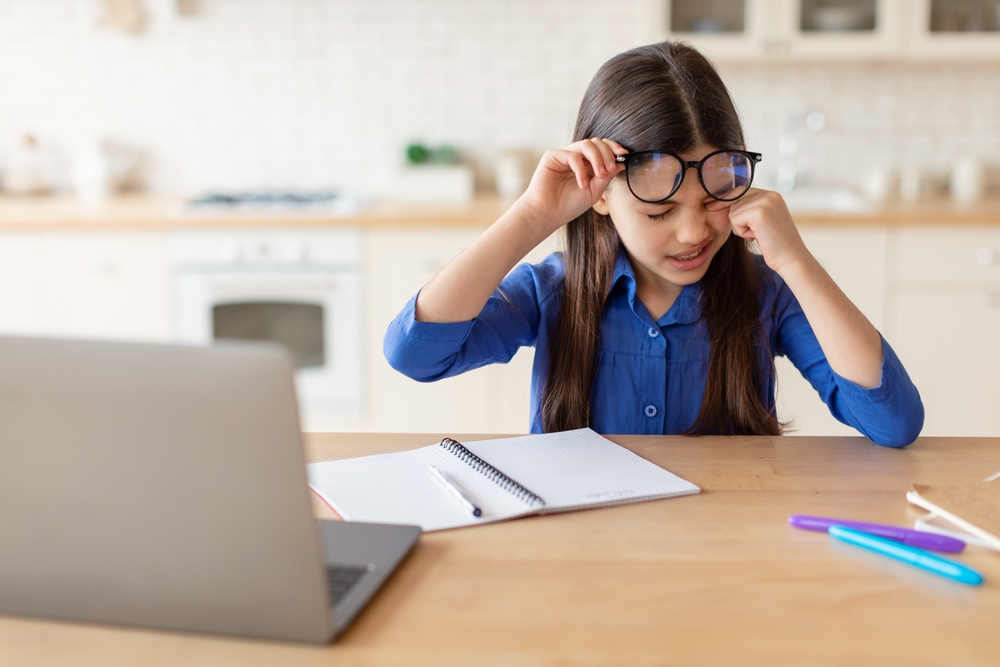
Myopia is on the rise, especially among children. In recent years, the prevalence of myopia has been increasing at an alarming rate. Studies show that the number of children with myopia has doubled in the past few decades, and the trend is expected to continue. This is a global phenomenon, affecting children in both developed and developing countries.
As a parent, you want your child to thrive academically and reach their full potential. However, if your child is struggling with myopia, it can have a significant impact on their learning and academic performance.
Understanding Myopia and Its Impact on Academic Performance
Myopia is a common vision condition that causes distant objects to appear blurry, while nearby objects remain clear. This can make it challenging for children to see the board, read textbooks, or participate in classroom activities. Uncorrected myopia can lead to difficulties with reading, writing, and overall academic performance.
How Myopia Affects Children's Learning and Academic Performance
The impact of myopia on academic performance is multifaceted. Children with uncorrected or poorly managed myopia may struggle to see the blackboard, read textbooks, or participate in classroom activities. This can lead to difficulties in keeping up with lessons, taking notes, and completing assignments. Additionally, the visual strain and fatigue associated with myopia can make it challenging for children to concentrate and focus, further impacting their academic progress.
The Importance of Early Myopia Management and Treatment
Early detection and management of myopia are crucial for ensuring your child's academic success. By addressing myopia at an early stage, you can prevent or slow down its progression, reducing the impact on your child's learning and overall academic performance. Regular eye exams and timely interventions are essential in this regard.
Effective Treatment Options for Myopia
There are several effective treatment options available to manage myopia in children:
MiSight Contact Lenses: These specialized contact lenses are designed to slow the progression of myopia in children. They use a dual-focus lens design with two treatment zones that focus light in front of the retina instead of behind it
Orthokeratology (Ortho-K): Ortho-K involves the use of custom-fitted, rigid gas-permeable contact lenses worn overnight. These lenses temporarily reshape the cornea, allowing for clear vision during the day without the need for daytime contact lenses or glasses.
Atropine Eye Drops: Low-dose atropine eye drops have been shown to be effective in slowing the progression of myopia in children. These drops work by relaxing the eye's focusing mechanism, which can help control the eye's growth.
Multifocal Contact Lenses: Multifocal contact lenses, which have different prescriptions in different parts of the lens, can also be used to manage myopia in children. These lenses can help reduce the eye's focus on close-up tasks, which can contribute to myopia progression.
The Role of Regular Eye Exams in Managing Myopia
Regular eye exams are crucial for monitoring and managing myopia in children. These exams allow eye care professionals to track the progression of myopia, identify any changes in vision, and recommend appropriate treatment options. By staying proactive with your child's eye health, you can ensure that any vision issues are addressed promptly, minimizing the impact on their academic performance.
Schedule Your Child’s Eye Exam with Elite Vision Care Today
As a parent, you play a vital role in ensuring your child's academic success. By understanding the impact of myopia and taking proactive steps to manage this vision condition, you can help your child overcome the challenges and thrive in their educational journey. early intervention and a comprehensive approach to myopia management can make a significant difference in your child's academic performance and overall well-being.
At Elite Vision Care, we are dedicated to helping children with myopia achieve their full academic potential. Visit our office in League City, Texas, or call (281) 554-7080 to schedule a comprehensive eye exam and discuss the best treatment options for your child.






